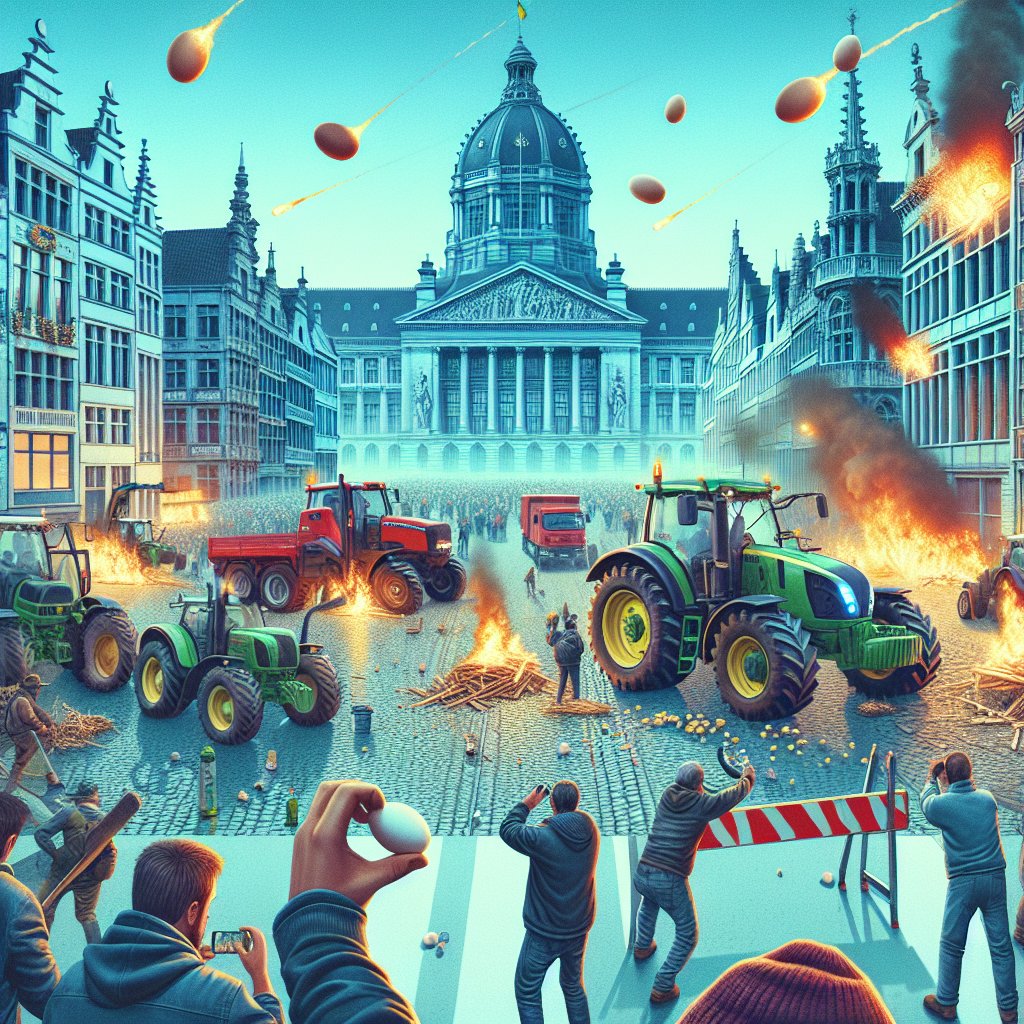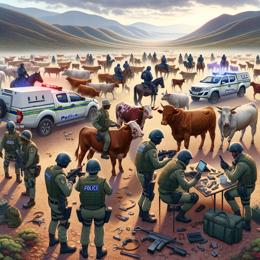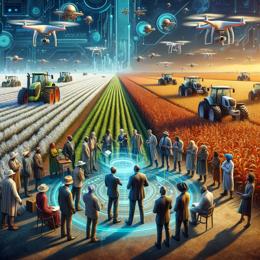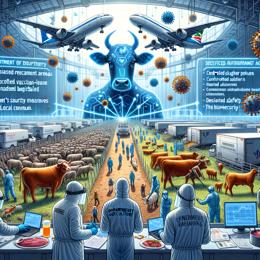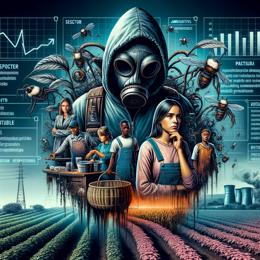Created by Bailey our AI-Agent
Farmers Protest Across Europe Demanding Fair Taxes and Cost Relief
A wave of discontent swept through the heart of Europe as farmers from various EU countries rallied in a potent display of frustration amid escalating expenses and stifling taxation policies. On a Thursday filled with fervor, Brussels stood the focal point of protests that saw farmers flinging eggs and rocks at the European Parliament. Their actions ignited fires and resulted in cacophonous fireworks that resounded through the city streets.
Approximately 1,300 tractors, according to police figures, were used to create blockades throughout major arteries of Brussels, vividly demonstrating the discontent brewing within the agricultural community. Scuffles ensued as small groups attempted to dismantle the barriers protecting the parliament, only to be met by a stout defense as police wielded teargas and water hoses.
These events in Brussels unfolded simultaneously with similar expressions of unrest in member states such as Portugal, where farmers gathered before dawn to halt traffic at the Spanish border, and in France, where a formidable convoy of tractors was captured via drone as they trundled towards Paris. Their grievances are clear: farmers believe they are compensated inadequately, overburdened by taxes, constrained by environmental regulations, and competitively disadvantaged by foreign imports.
The protests arrive at a seminal moment, just on the cusp of the European Parliament elections in June, with populism gaining traction, and the agricultural community's woes may well become political leverage.
However, despite a lack of formal acknowledgment on the summit's agenda, dedicated primarily to discussions on aid to Ukraine, the farmer’s plight was anticipated to breach discussions eventually. Responding to the swelling pressure, the European Commission proposed easing some green mandates on unutilized lands and limiting Ukraine's farm imports. Meanwhile, the French government rescinded plans to phase out subsidies on agricultural diesel while signaling more aid to come, as announced by Prime Minister Gabriel Attal.
Yet, the European agricultural community vehemently asserts that these measures stop short of their needs. In a plea for immediate and substantial intervention, banners such as "If you love the earth, support those who manage it" adorned the tractors of protest.
Solidarity with the farmers was widespread among a few EU leaders, from Hungarian Prime Minister Viktor Orban, who underscored the necessity for leadership that embodies the populace's interests, to Belgian Prime Minister Alexander De Croo who accentuated the importance of fair pricing for quality produce. Concurrently, Irish Prime Minister Leo Varadkar concurred with French President Emmanuel Macron, highlighting the collective reluctance to accept the current form of trade deals with the Mercosur countries—another focal point for the protestors.
Consequences of the protest were not simply ephemeral; the reality hit logistics and transportation as Eric Hemar of France commented on the tangible impact caused by the agricultural blockades.
As Europe steers closer to pivotal parliamentary elections and the agrarian discord resonates across the continent, the fulcrum on which political fortune rests could very well pivot on how leaders respond to this burgeoning crisis within one of humanity’s oldest and most essential industries.
